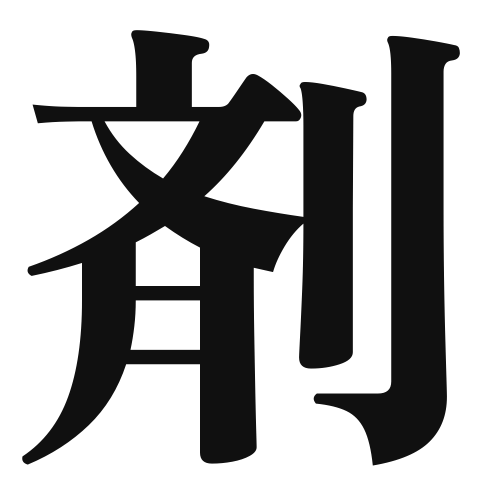1. Overview of Meaning
The kanji “剤” (zai) generally means “agent” or “medicine.” It is often used to refer to substances that have a specific function, particularly in the context of pharmaceuticals or chemicals.
2. Origin and Radicals
The kanji “剤” is a phonetic compound (形声文字), which means it combines a meaning component with a phonetic component. The left part, “材” (zai), relates to materials or resources, while the right part, “才” (sai), indicates ability or talent. Together, they convey the idea of a material that has a specific function.
The radical of “剤” is “材,” which is associated with materials and resources.
3. Examples of Usage
Common words that include “剤” are:
- 薬剤 (やくざい, yakuzai) – medicine or pharmaceutical agent
- 防腐剤 (ぼうふざい, boufuzai) – preservative
Example sentence in daily conversation:
「この薬剤は風邪に効きます。」 (このやくざいはかぜにききます。) – “This medicine is effective for a cold.”
4. Synonyms and Antonyms
Similar kanji with related meanings include:
- 薬 (やく, yaku) – medicine, which is more general and refers to any medicinal substance.
- 成分 (せいぶん, seibun) – component, which refers to the ingredients or elements of a substance.
Antonyms include:
- 毒 (どく, doku) – poison, which has a harmful effect, contrasting with the beneficial nature of “剤.”
5. Cultural and Historical Background
The kanji “剤” is often associated with Japanese culture through its use in traditional medicine and modern pharmaceuticals. It reflects the importance of health and wellness in society.
Proverbs and idiomatic expressions that include “剤” are less common, but the concept of medicine and healing is prevalent in Japanese culture, emphasizing the value of health and the role of medicinal agents in daily life.
